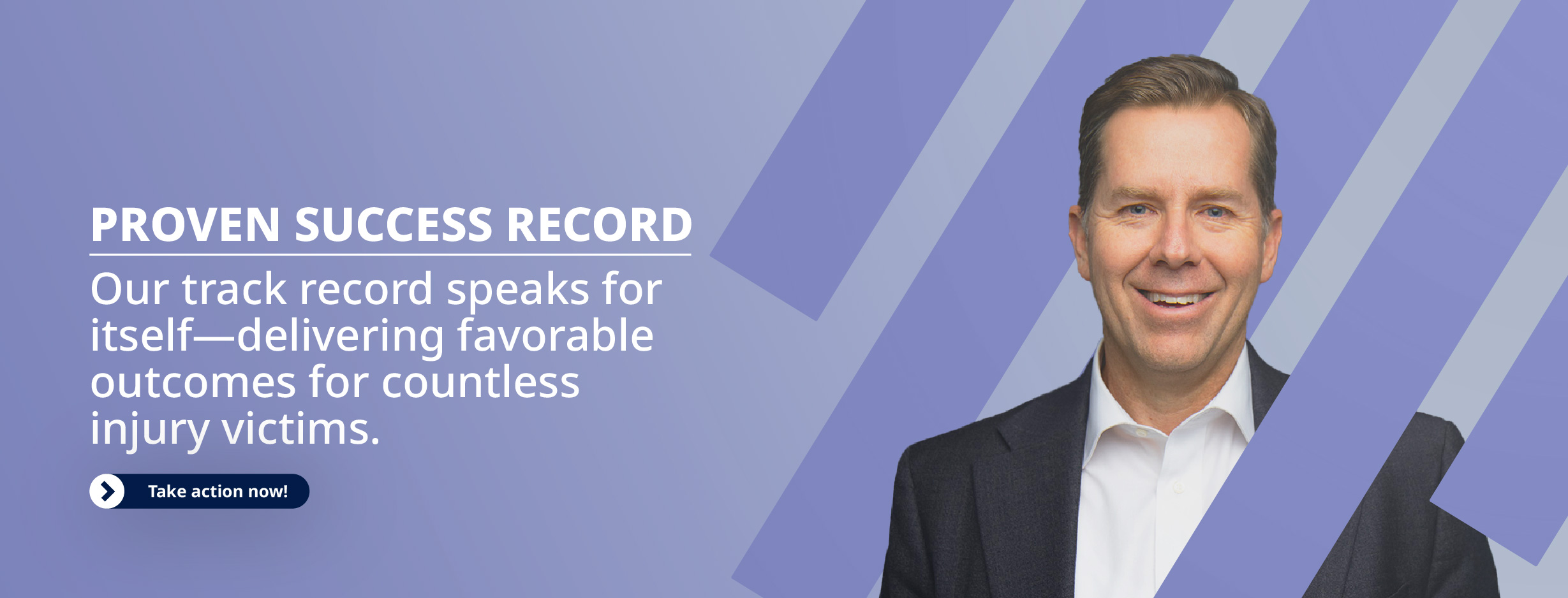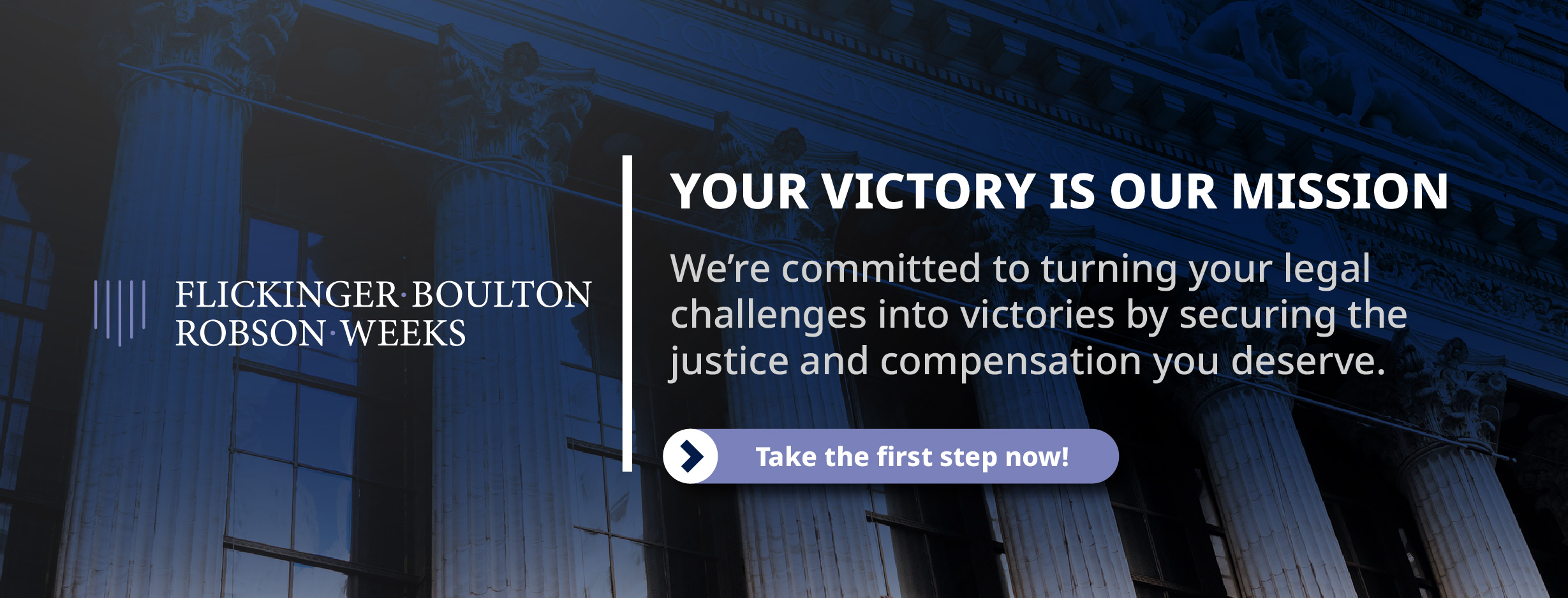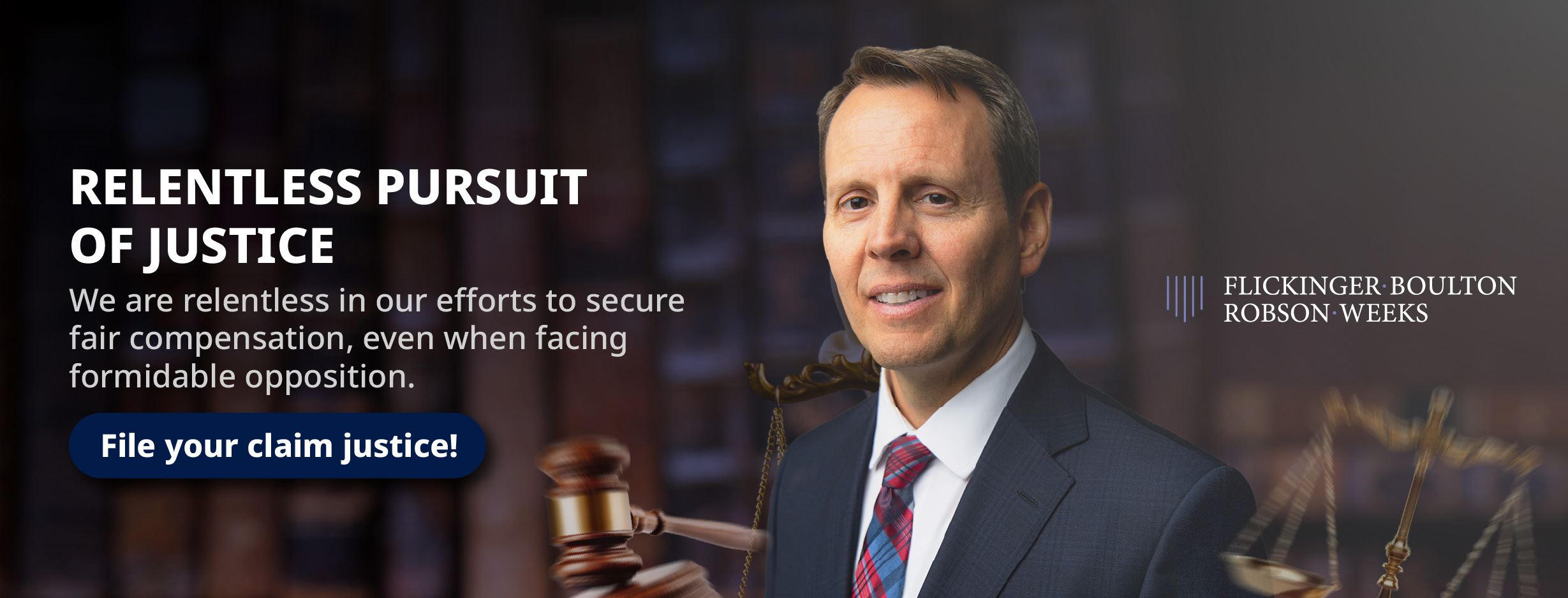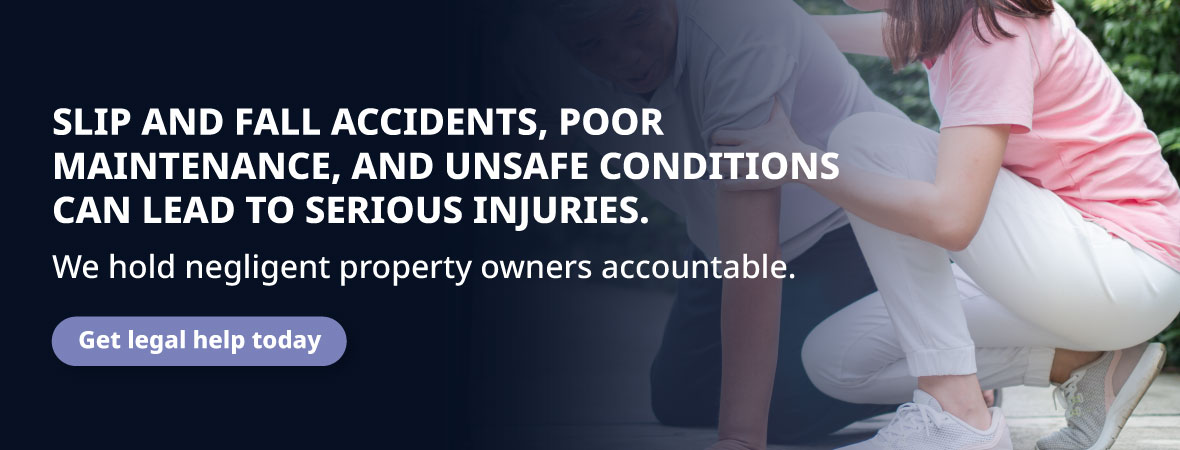You might be visiting a friend’s apartment complex in St. George or browsing in a local store when a loose railing or an unmarked hazard suddenly causes you to fall. In an instant, you are in pain, facing unexpected hospital bills and time away from work.
You may feel uncertain about your legal options, especially if you worry that the property owner will blame you for not being more careful. It can be overwhelming to navigate premises liability laws and determine whether you can recover your financial losses.
These concerns can grow with each passing day. You might wonder how to pay for ongoing therapy or whether the property owner’s insurance will cooperate. The good news is that Utah law holds property owners responsible for serious hazards, particularly when they knew or should have known about the danger and failed to fix it.
Our St. George premises liability lawyers at Flickinger Boulton Robson Weeks have decades of experience helping victims recover compensation for injuries caused by unsafe property conditions.
In this article, we will explain how premises liability works, what steps to take if you are injured on someone else’s property, and how an experienced law firm can help you pursue the compensation you deserve.
Premises liability covers a wide range of dangers that might exist on someone else’s property. St. George, known for its warm climate and scenic neighborhoods, is no exception. Below are a few frequent examples:
Possibly the most typical premises liability claim, these accidents happen when property owners fail to remove or warn about hazards that cause someone to fall. A wet supermarket aisle without caution signs, a cracked sidewalk in a residential complex, or a freshly polished restaurant floor lacking “Wet Floor” markers can all result in serious injuries. Broken wrists, hip fractures, or even head trauma commonly arise from sudden falls. Victims then face painful rehabilitation, time off work, and financial strain.
Certain establishments in St. George, such as shopping centers or large apartment complexes, have a responsibility to implement effective security measures. If inadequate lighting, broken locks, or a lack of security personnel contribute to a criminal act, such as an assault, the property owner may share some of the blame.
While it is the criminal who ultimately causes harm, the landowner’s negligence in providing basic safety protections can serve as a basis for a premises liability claim if it unnecessarily increased your risk.
Pet owners are responsible for keeping their animals under control, particularly if their dog has a history of aggression. In Utah, if a guest or passerby is bitten by a dog on private property, the owner may be held liable.
Some cases depend on whether the victim provoked or teased the dog. However, failing to follow leash regulations or owning a dog known for biting can result in strict liability claims. Injuries from a dog bite can be severe, potentially requiring stitches, rabies shots, or even reconstructive surgery.
Overloaded shelves, poorly secured items, or defective store displays sometimes cause merchandise or equipment to tumble onto unsuspecting patrons. This can result in head injuries, lacerations, or broken bones.
If staff or managers ignored safe display protocols, they might be liable for not preventing the hazard.
With St. George’s warmer weather, pool-related accidents can surface in private homes, hotels, or community facilities. Slippery decks, missing lifeguards, or inadequate fencing can put visitors in real danger. If a child drowns or nearly drowns because the pool area lacked locked gates or proper supervision, the property owner may face serious liability.
By pinpointing the exact nature of a premises liability scenario, whether it is a slip and fall, dog bite, or security lapse, victims can better frame their claim. Identifying how the owner or occupant overlooked a hazard helps prove negligence.
An experienced St. George personal injury attorney from our team can guide you in collecting photos, medical documents, and witness accounts that reinforce how unsafe conditions caused your injuries to stregthen your claim.

St. George property owners owe a certain duty of care to people who visit their premises. The aim is to keep guests or customers safe from hazards they either know about or should discover by carrying out basic inspections.
If they fall short, they could be held accountable for the harm that befalls an unsuspecting visitor. Though the specifics can vary based on the visitor’s purpose, here are the core responsibilities:
Owners must repair or remove hazards within a sensible timeframe, or at least warn guests until repairs are completed. Examples might be fixing broken steps, clearing spilled liquids, or fencing off a construction site. Failure to address such dangers can signal negligence.
A property owner who never inspects their premises could be found liable if an obvious risk arises. They cannot claim ignorance if they never bothered to look. Courts and insurers often evaluate how regularly an owner performed maintenance or walked through the area looking for potential risks.
If something cannot be fixed immediately, owners should place signs or barricades to alert visitors. For instance, if a sidewalk crack takes time to mend, a warning sign or rope barrier can help people avoid it. Not doing so might strengthen a victim’s argument in a lawsuit.
In certain neighborhoods or commercial properties with higher crime rates, owners might need security cameras, strong locks, or even a security guard.
While they are not required to prevent all crime, ignoring well-known threats can be seen as irresponsible if a violent act or theft happens.
In Utah, the law might treat a trespasser differently from an invited guest or a paying customer. Trespassers typically receive less protection unless the owner set a trap or acted recklessly. Meanwhile, business visitors receive the highest level of care. The type of visitor can influence the outcome in court.
Adhering to these duties helps property owners minimize accidents. Conversely, skipping them exposes an owner or manager to legal liability for injuries. Whether they run a retail store, maintain an apartment complex, or own a private home, ignoring maintenance or security responsibilities can be quite costly if a guest gets hurt.
Getting hurt on someone else’s property does not automatically guarantee you are entitled to damages. In a premises liability lawsuit, you must establish that the owner’s negligence directly led to your harm. This typically means proving several elements:
Property owners or their insurers might argue you contributed to the injury, maybe by texting while walking or ignoring posted signs. This partial blame can reduce your total compensation if found to be valid.
Our team of dedicated personal injury attorneys can effectively highlight the main hazard that caused your fall or injury. Gathering thorough evidence right from the start is essential for clearly demonstrating each connection in the chain of negligence.

When an unexpected slip, trip, or other mishap occurs on a property in St. George, your immediate actions can shape how well you recover, both physically and financially. Acting methodically ensures you secure necessary proof and remain in compliance with legal requirements. Consider these guidelines:
Following these steps from the onset builds a strong foundation for any potential claim. While your focus might be on healing, laying out a structured approach from day one eases the legal burden down the line.
Property-related accidents can burden you with unexpected bills and lost income. If you prove a property owner’s neglect caused your injury, Utah law provides avenues to seek financial relief. Although each situation is unique, the following damages commonly appear in premises liability settlements or court awards:
Arriving at a fair amount of compensation requires balancing immediate bills with potential long-term therapies or surgeries. Insurers often propose low initial offers, hoping to settle with you for as little as possible.
Having a St. George premises liability lawyer representing you ensures you accurately account for intangible distress or future wage loss. By combining medical records, professional opinions, and personal narratives, you can demonstrate why you deserve more than a minimal payout.
Many claims are resolved through settlements, allowing you to receive compensation more quickly while avoiding the uncertainty and cost of a trial. If the at-fault party refuses to make a fair offer, filing a lawsuit can often pressure them to return with better terms.
If an agreement is not reached, the case may go before a judge or jury for a final decision. Understanding the full extent of your damages is essential to staying firm in your pursuit of compensation that truly reflects how the injury has impacted your life.

Filing a premises liability claim often involves negotiating with insurance companies, which can be challenging. These insurers typically represent the property owner or a business leasing the space where your accident occurred.
Their main goal is to pay as little as possible, meaning they will look for ways to deny or minimize your claim. Understanding how to handle these interactions can make a big difference in the outcome of your case.
Here are key steps to take when dealing with insurance companies in premises liability cases:
If you believe the property owner’s insurance should cover your injury, it is essential to notify them as soon as possible. However, when making this initial contact, be careful about what you say. Provide only the necessary information, including:
Avoid making an admission of fault or providing too many details about the accident before consulting with an attorney. Insurance adjusters are trained to find inconsistencies in statements, and anything you say might later be used against you to reduce or deny your claim.
Insurance companies will demand proof that the property’s dangerous condition directly caused your injury. Without strong evidence, they might argue that your injuries resulted from a different incident or that you were careless. To counter this, gather the following:
Gathering solid evidence makes it more difficult for insurers to dispute your claim or place blame on you.
One of the most common tactics insurers use is to argue that you were partially or entirely responsible for your own injuries. They may claim:
Under Utah’s comparative negligence rule, if the insurance company can prove that you were 50% or more responsible for the accident, you could lose your right to compensation. This is why it is crucial to document the property owner’s negligence thoroughly.
If there was no warning sign, take a picture to prove it. If the hazard was something unavoidable (like ice on a walkway that should have been salted), make sure your evidence highlights this.

After you file your claim, an insurance adjuster may reach out with a quick settlement offer. This initial offer is often much lower than what you actually need to cover medical bills, lost wages, and future treatments.
Insurance companies use this tactic to settle cases quickly before you understand the full extent of your injuries. For example:
If you accept an early settlement, you forfeit your right to seek additional compensation later. Instead of rushing into a decision, consult with a doctor to get a full assessment of your injuries. Then, consider seeking legal advice before agreeing to any settlement.
Handling insurance negotiations on your own can be stressful, especially while recovering from an injury. A premises liability attorney in St. George can help by:
An attorney knows how to counter the insurance company’s tactics and prevent you from settling for less than you deserve.
Throughout the claims process, keep a detailed record of all communications with the insurance company. Save emails, letters, and notes from phone calls, including:
When speaking with an adjuster, always remain calm and professional. Avoid emotional reactions or making statements that could be used against you. If you feel pressured, tell them you need time to review their request before responding.
Insurance companies are not on your side; their goal is to reduce their payout as much as possible.
By taking the right steps, limiting what you say, preserving evidence, being aware of blame tactics, rejecting quick settlements, consulting an attorney, and staying organized, you can protect your rights and improve your chances of receiving fair compensation for your injuries.

Flickinger Boulton Robson Weeks recognizes how a premises liability injury can upend your life in an instant, leaving you with hospital bills, missed paychecks, and physical or emotional pain.
Our goal is to handle the legal complexities so you can focus on rebuilding your health and well-being. Below is a glimpse into our personalized approach:
During our initial consultation, we ask about the accident details, your injuries, and any attempts you have made to address the property hazard. Each property-related injury has unique nuances, maybe you slipped on an unmarked spill or a weak railing gave way.
By listening carefully, we make sure we understand the full spectrum of damages you have experienced, and the circumstances the led you there. We will also talk about possible legal strategies, including negotiating with the property owner’s insurer or filing a court claim.
Gathering proof is paramount. We search for maintenance records, incident logs, or any prior complaints from others who got hurt on the same site. If the property had security cameras, we’ll request that footage. If your accident occurred outdoors, we might look for city inspections or examine weather reports.
Our thorough approach helps reveal if the owner ignored known risks. If necessary, we consult experts to confirm whether the hazard violated safety codes or industry standards.
We work with you to collect medical records, physician notes, or any prescriptions that tie your injuries directly to the property condition. If you need ongoing care or face months of physical therapy, we account for those future costs.
For missed workdays or a forced career change, we gather pay stubs, letters from employers, and witness testimony from economic experts to show how your injury affects your earning potential.
Property owners or their insurers sometimes deny responsibility or offer low settlements. Our lawyers gather and present evidence to clearly show their negligence and how it led to your injuries and financial losses.
We also highlight the less visible effects of your injury, such as ongoing pain and emotional distress. Making it clear that we are prepared to take the case to court if necessary often encourages insurers to offer a more reasonable settlement.
When negotiations stall, we do not hesitate to file a lawsuit. In court, we meticulously present witness accounts, photographic proof, and expert testimonies on building codes or standard property upkeep. We also show the consequences of the accident on your life.
Throughout the process, we keep you informed, answering questions and addressing concerns so you never feel uncertain or alone. We empathize with the emotional strain an injury can cause, aiming to ease your burdens. By merging legal insight with genuine care, we ensure every angle is covered.
We believe in standing by your side, advocating for just compensation that truly reflects your suffering, expenses, and lost opportunities.

Usually, owners have a lesser obligation to trespassers. However, if the owner set up concealed traps or was extremely reckless, they might still face liability. Child trespassers sometimes receive extra protection under the “attractive nuisance” doctrine if the property has something like a pool or trampoline.
In Utah, the statute of limitations for most injury claims is four years from the date of the accident. Still, some exceptions exist for suits against government bodies or if the victim was a minor. An attorney can clarify which time limits apply.
Yes, as long as your fault stays below 50 percent. If the court or insurer deems you more than half responsible, you may not recover anything. That is why documenting the property owner’s oversight or negligence is crucial.
They can repair or remove evidence, but photos or witness statements remain valid proof. If you suspect changes might occur, consult an attorney promptly to gather documentation before anything is altered.
If you or a loved one have been injured on another’s property in St. George, at Flickinger Boulton Robson Weeks we are ready to help. We have represented numerous Utah residents in premises liability cases, seeking just settlements or verdicts to cover significant medical bills, lost wages, and emotional distress. Call a St. George premises liability lawyer at (801) 500-4000 for a free consultation today to find out how we can help you move forward with confidence.
Bicycle Accidents
Motorcycle Accidents
Boating Accidents
Recreational Vehicle Accidents
Bus and Mass Transit Accidents
Pedestrian Accidents
Automobile Accidents
ATV or UTV Rollovers
Commercial Vehicle Accidents
Semi Truck and Trailer Accidents
UTAH INJURY LAWYERS
Flickinger • Boulton
• Robson • Weeks
PROVO OFFICE
3000 N University Ave
Suite 300
Provo, UT 84604
SOUTH JORDAN OFFICE
10393 S. Temple Dr.
Suite 103
South Jordan, Utah 84095
OFFICE HOURS
Monday- Friday: 8AM-5PM
Saturday-Sunday: Closed
*Disclaimer: the information provided by this website is for informational purposes only and should not be considered legal advice or a substitute for competent legal counsel.
**SMS consent and contact phone numbers will not be shared or sold to third parties or their affiliates for any purpose.
© 2025 All Rights Reserved.